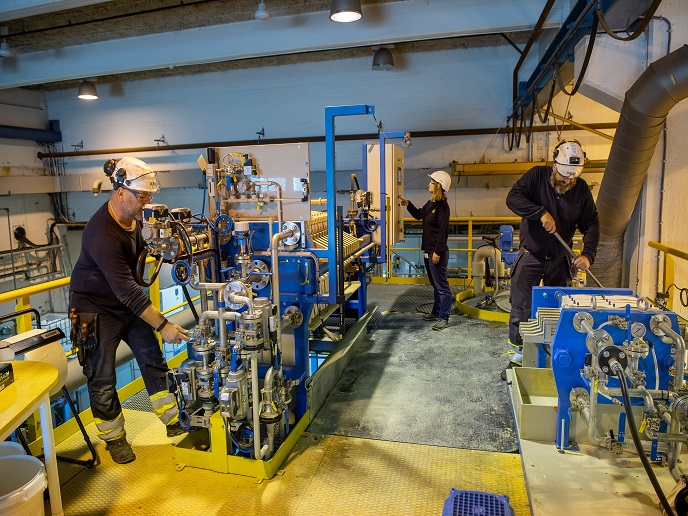Monitoring salinity in well streams
Multi-phase flow meters (MPFMs) are used at sea to measure the individual flow rates of oil, gas and water in the well stream. The majority of MPFMs use technology that is heavily influenced by variations in salinity. However, variations in technology can result in inaccurate flow rate data, resulting in poor well management and less-effective processing of the multi-phase flow. With EU funding, the SALINITYSCAN project developed a system for the semi-continuous monitoring of salinity in well streams. The purpose was to remove volume measurement error and detect water breakthrough. The latter occurs when the well begins to produce sea water that was previously injected into the well to increase pressure. It can also result from water penetrating the oil-carrying layer in the reservoir. The system is based on the development of an analysis chamber equipped with level measurement and salinity sensors for analysing the separated multi-phase fluid. Project partners also designed an extensive control system that provides the end user with an easy way of ensuring increased flow and better exploitation of the well. Sensors needed to have a high degree of reliability and safety as well as the ability to operate with a variety of multi-phase fluids in a harsh environment. These conditions involve extremes of pressure and temperature. Because of these demanding conditions, project partners developed and tested many different types of level measurement sensors. SALINITYSCAN data was used to update the flow meter calibration parameters, thereby compensating for any changes caused by variations in salinity. The semi-continuous monitoring of salinity makes it easier to detect water breakthroughs. The technology can also be used as a tool for measuring salinity in order to determine the need to inject chemicals to inhibit hydrate formation. Combining the SALINITYSCAN system with an MPFM unit will provide many benefits, including increased revenue as a result of correct data from flow meters. It will also help extend the life of the field through improved reservoir management. In addition, the technology will reduce the use of anti-scaling chemicals through better measurement of salinity and pH of produced water.
Keywords
Monitoring salinity, salinity, well stream, oil production, multi-phase flow meter, flow rate, water breakthrough, sea water, multi-phase fluid, measurement sensor, hydrate formation, reservoir management







